
Mark Duffy has written the Copyranter blog for 11 years and is a freelancing copywriter with 25-plus years of experience. His hockey wrist shot is better than yours.
The Cannes International Festival of Creativity starts this weekend. The rosé and disingenuous compliments will flow like water. And, like every year, obviously fake ads will win Lions. And, like every year, the festival’s parent company (Ascential plc) will do absolutely zilch about it.
The Festival has advised jury judges to ban work that perpetuates gender bias. And in a huge blow to downtrodden rich, bearded white men, Ascential has promised to crack down on the yacht parties. But fake/scam ads? *Crickets*. In the past, they’ve even allegedly stopped jurors from reporting scams.
The reason for this is, of course, money. The extortionary entry fees range from €475 to €1,435 ($530 to $1,600) per entry, per category. And the fees — and revenue — go up every year.
The best solution to this situation is obvious: Cannes should just allow fake and scam ad entries, no questions asked. If they want to truly, fully honor “creativity,” then they should remove the (already loose) moral shackles from ad agencies and let them go nuts. Just imagine the boost in income, Ascential.
But until then, the Chip Shop Awards remain the only 100-percent honest awards show. The “Chips” — judged by some of the top creative pros in the U.K. — were given out last Wednesday in London. Below are some of the winning and notable entries.
Let’s celebrate real fake ads, instead of fake real ads.
Best Ad From The Future
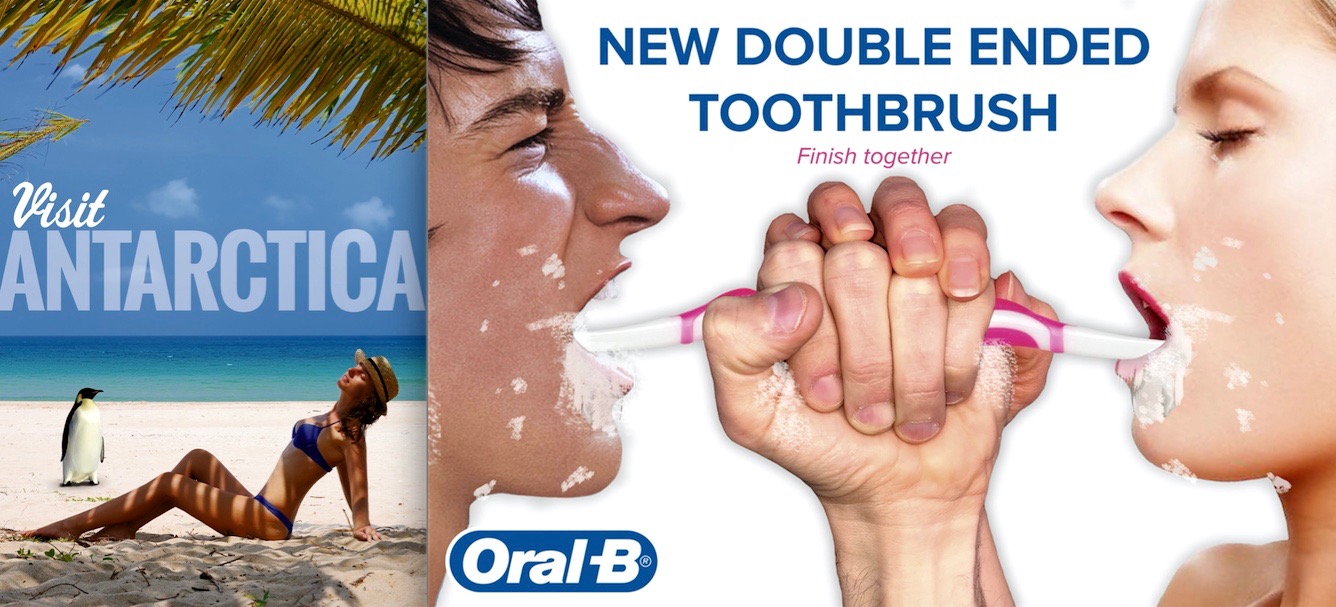
The Antarctica ad, by “C21,” was a winner in the category. The Oral-B ad, by Richard Tissington, received a “Commended.” I don’t know how “futuristic” the Oral-B ad is, but I am intrigued by it.
Best Vandalism of an Existing Ad
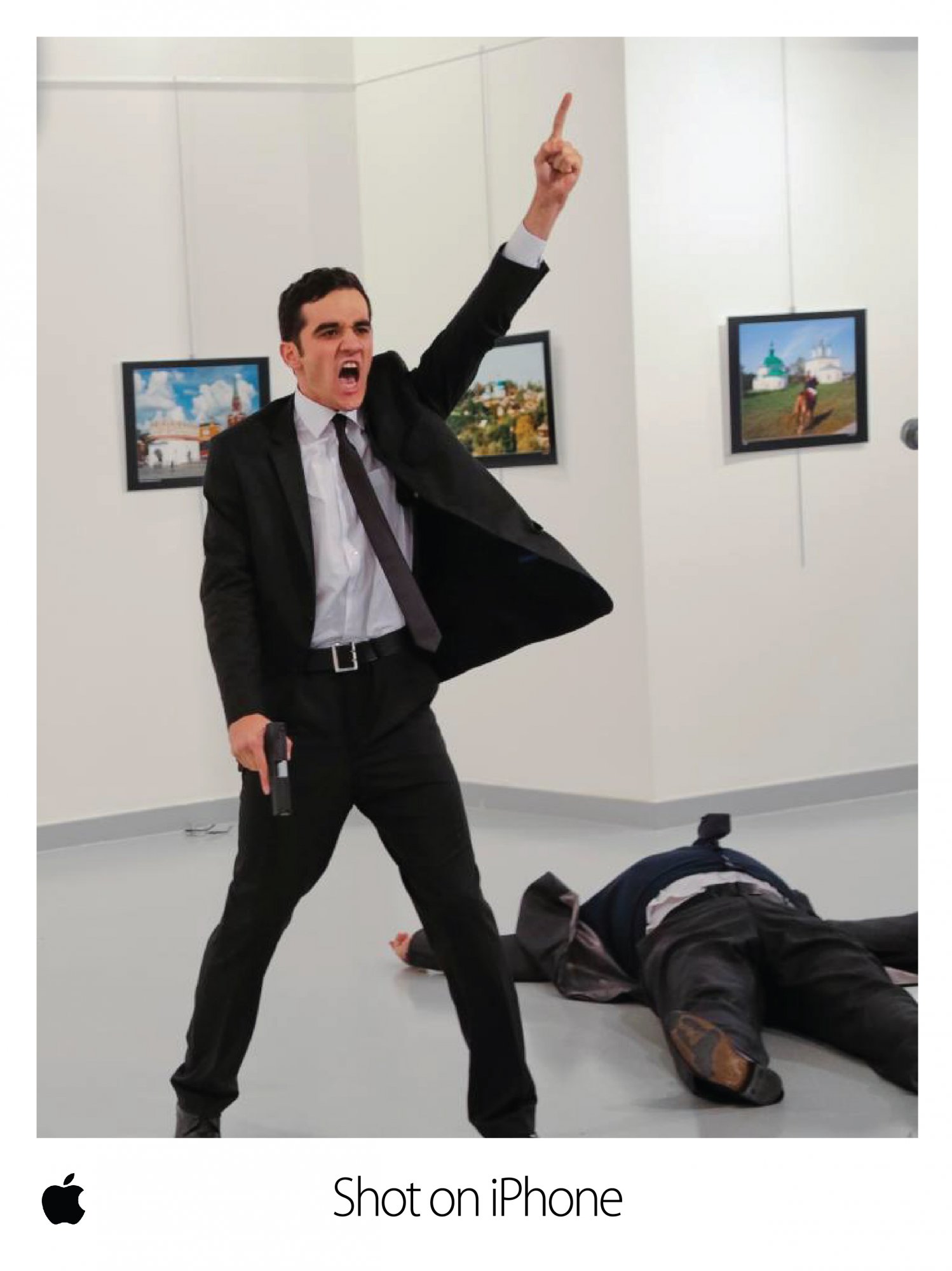
Nice photo choice by category winner Stein IAS. The shot is the assassination of Andrei Karlov, Russian ambassador to Turkey, by off-duty Turkish police officer Mevlüt Mert Altıntaş.
Best Use of an Alternative Media Space
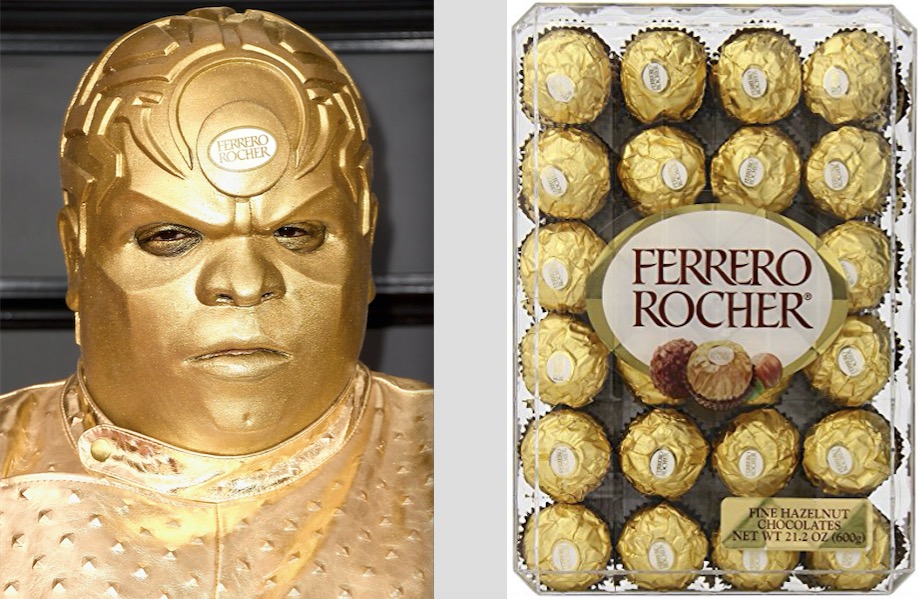
This may be my favorite Chip Shop entry (by Momentum), although it didn’t win the category. You may remember CeeLo Green’s “Gnarly Davidson” all-gold Grammys get-up. Imagine the number of free impressions you would have gotten, Ferrero.
Best Use of a Celebrity
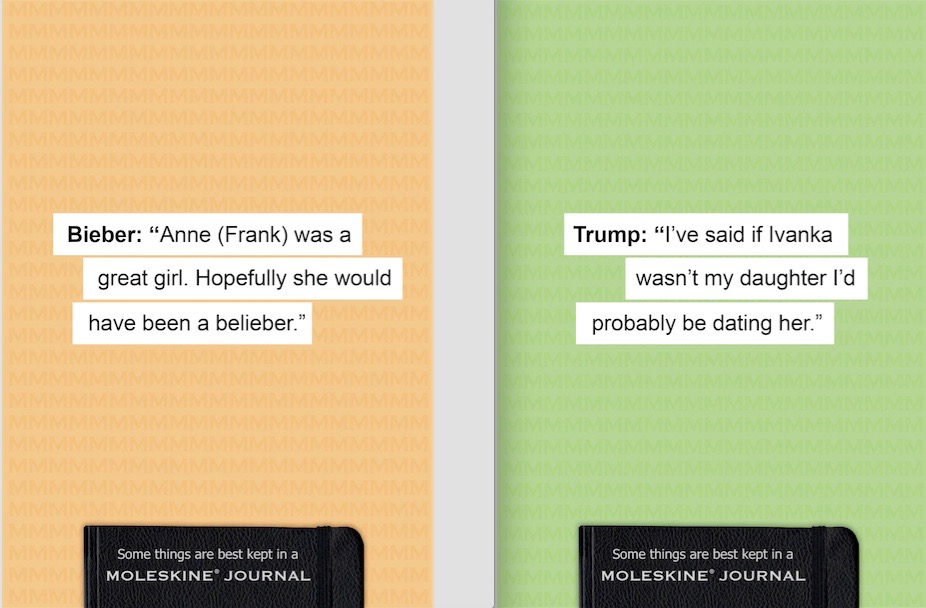
Oliver Cooper received a “Commended” for his celebrity Moleskine campaign. President Trump should definitely maybe consider stopping tweeting and starting a journal.
Best Charity Ad
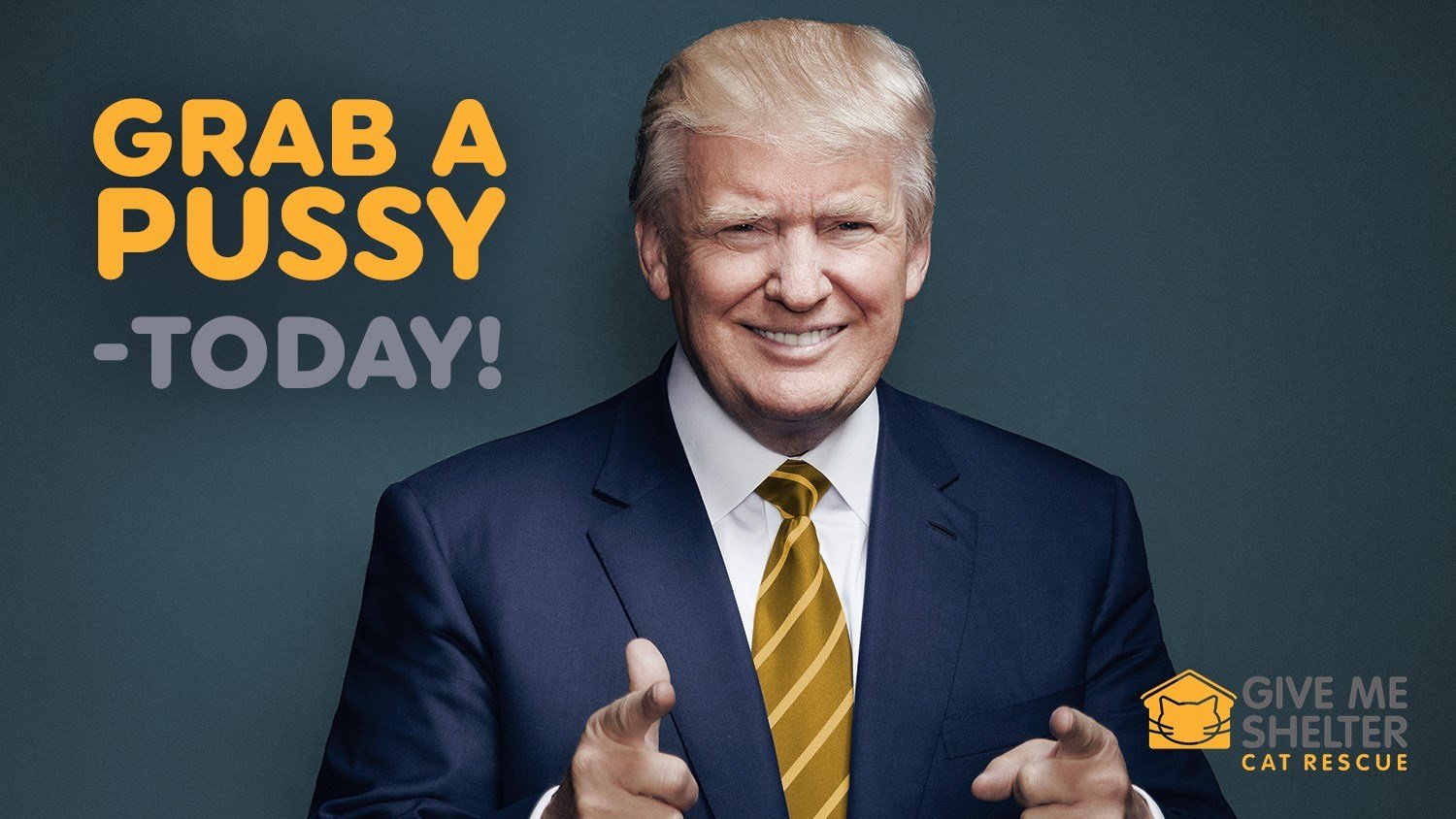
Staying with Trump, this entry by creatives Andreas Arnaa, Christina Anaya and Jesper Sichlau is very obvious, but sometimes — especially with nonprofit ads — obvious is best.
Best Ads Without a Headline/Without a Visual
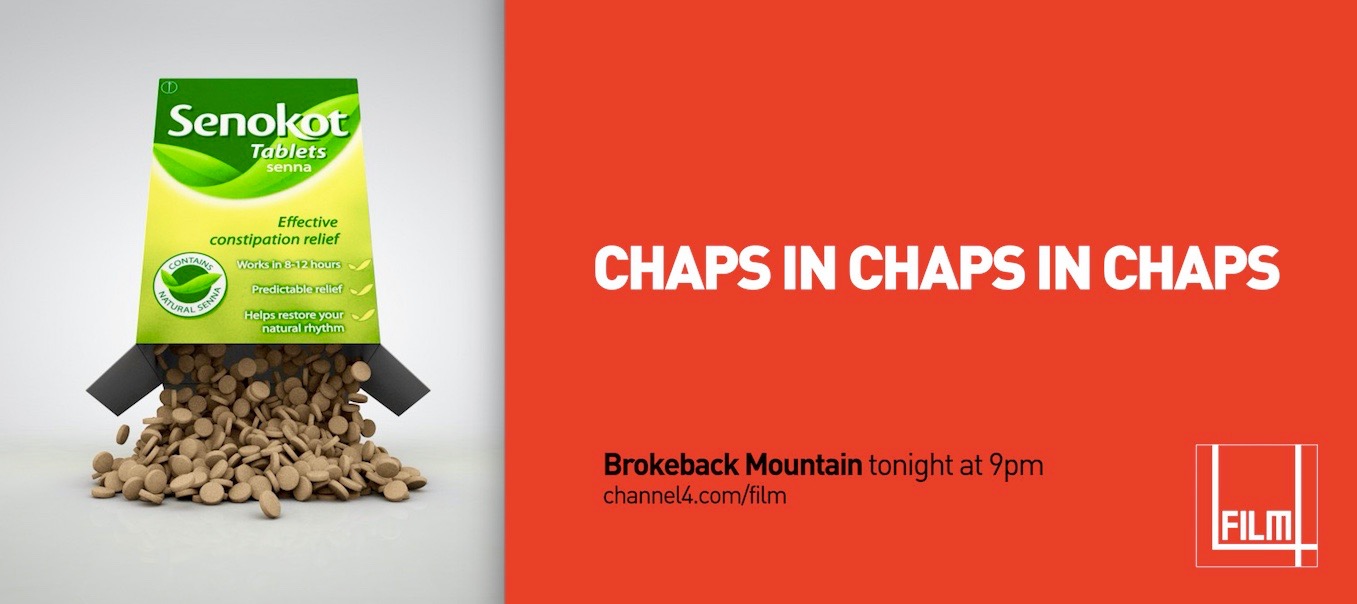
The Jelly team of art director Jack Patarou and copywriter Kelly Bugg won the Ad Without a Headline category with a Senokot ad I bet the client would love to run right now. And while copywriter Martin Rockley didn’t win with his visual-less Film4 ad, he did destroy my pun-o-meter.
Isn’t fake creativity fun? See all of the Chip Shop winners here.
More in Media

In Graphic Detail: The scale of the challenge facing publishers, politicians eager to damage Google’s adland dominance
Last year was a blowout ad revenue year for Google, despite challenges from several quarters.

Why Walmart is basically a tech company now
The retail giant joined the Nasdaq exchange, also home to technology companies like Amazon, in December.

The Athletic invests in live blogs, video to insulate sports coverage from AI scraping
As the Super Bowl and Winter Olympics collide, The Athletic is leaning into live blogs and video to keeps fans locked in, and AI bots at bay.








